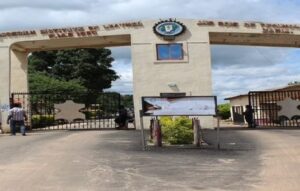Leather Institute to Set Up Tanneries Across Nigeria
Leather Institute to Set Up Tanneries Across Nigeria

The Nigerian Institute of Leather and Science Technology (NILEST) has announced plans to establish mini tanneries across all 36 states in Nigeria. This initiative is aimed at transforming hides and skins into high-quality leather, bolstering the country’s leather industry, and creating jobs.
Prof. Mohammed Yakubu, Director-General of NILEST, shared the vision on Sunday in Abuja, stating that the mini tanneries would introduce modern technology to improve leather processing efficiency. The project is part of efforts to strengthen Nigeria’s leather sector and maximize its potential as a valuable economic resource.
Yakubu, who also leads the National Leather Policy Implementation Committee, emphasized that leather holds immense potential for generating foreign exchange and creating significant employment opportunities. He noted that the underutilization of hides and skins, often diverted to the food market as “Kpomo,” has hindered the growth of the industry. He explained that due to the limited number of operational tanneries, much of Nigeria’s leather resources remain untapped.
“We consume hides and skins as ‘Kpomo’ because current tannery capacity is insufficient to process the vast quantities produced in Nigeria,” Yakubu stated. “In Lagos alone, approximately 100,000 cows are slaughtered daily, yet only 48 tanneries exist to process these hides into leather products.”
To address this gap, Yakubu outlined plans for the mini tanneries, which will absorb the excess hides and skins and produce leather products for both domestic and international markets. The mini tanneries are expected to process between one and five tonnes of leather each week, with various regional clusters focusing on manufacturing leather products locally.
NILEST also plans to distribute unprocessed leather to regions such as the South East, South West, Jos, and Kano, in addition to processing leather for export.
Experts have highlighted the significant economic potential of Nigeria’s leather industry, with studies indicating its annual export value could exceed $1 billion. Yakubu also stressed the importance of improving Nigeria’s power supply to remain competitive with global leather-exporting countries like China, Brazil, and India. He urged the Federal Government to focus on providing affordable and reliable power to boost the sector’s competitiveness.
“As we continue to promote this initiative, we are advocating for essential support, especially in areas like power, to help the leather industry thrive,” Yakubu concluded.
TRENDING SONGS
 Shock in Anambra: Bride Disappears Moments Before Wedding
Shock in Anambra: Bride Disappears Moments Before Wedding
 Nigerian Woman Returns ₦330 Million Accidentally Credited to Her Account
Nigerian Woman Returns ₦330 Million Accidentally Credited to Her Account
 APC Don Reach Morocco?’ VeryDarkMan Reacts to Seyi Tinubu Poster
APC Don Reach Morocco?’ VeryDarkMan Reacts to Seyi Tinubu Poster
 Bride Breaks Down in Tears as Wedding Meals Were Kept Secretly While Guests Go Home Hungry
Bride Breaks Down in Tears as Wedding Meals Were Kept Secretly While Guests Go Home Hungry
 Odogwu by Day, Robber by Night: How Marriage Joy Turned Into Tragedy
Odogwu by Day, Robber by Night: How Marriage Joy Turned Into Tragedy
 Nigerian Officials Allegedly Pocket N4–6B Weekly Through Smuggling Cartels at Seme–Badagry Border
Nigerian Officials Allegedly Pocket N4–6B Weekly Through Smuggling Cartels at Seme–Badagry Border
 Ahmad Yerima: Naval Officer to Face No Sanctions After Clash with Wike – Matawalle
Ahmad Yerima: Naval Officer to Face No Sanctions After Clash with Wike – Matawalle
 Trending Video: Muslim Man Joins Wife in Hallelujah Challenge ‘Dress Like Your Miracle’ Night
Trending Video: Muslim Man Joins Wife in Hallelujah Challenge ‘Dress Like Your Miracle’ Night
 Woman Seeks Advice as Late Brother’s Wife Refuses to Mourn Him Following His Death With Alleged Mistress
Woman Seeks Advice as Late Brother’s Wife Refuses to Mourn Him Following His Death With Alleged Mistress
 Nobody Cares About Fine Girls In The UK, I Miss Nigeria — Nigerian Lady Laments
Nobody Cares About Fine Girls In The UK, I Miss Nigeria — Nigerian Lady Laments
Share this post with your friends on ![]()













